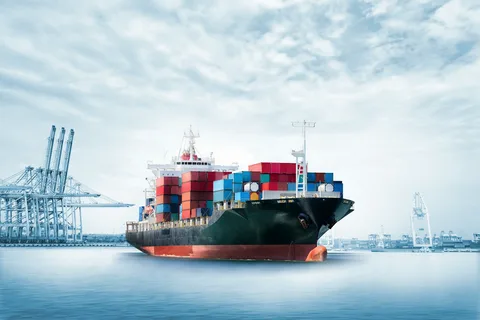Businesses depend on efficient logistics networks to move goods safely and economically across continents. Among all transport modes, sea freight logistics remains the foundation of international trade by handling over 80% of global cargo by volume. Its unmatched capacity, cost-effectiveness, and reach make it an essential part of modern supply chains. Whether shipping heavy machinery, electronics, or consumer goods, maritime transport offers scalability and stability that few alternatives can match.
Below are the 7 advantages of these logistics:
1. Cost Efficiency and Scalability
One of the biggest advantages is its cost-effectiveness, particularly for large and heavy shipments. Unlike air or land transport, ocean shipping leverages economies of scale, enabling companies to transport vast quantities of goods at a fraction of the cost. This makes it an ideal solution for industries such as manufacturing, construction, and retail that rely on bulk movement of goods.
Scalability is another significant benefit. Whether a company needs to ship a single container or multiple full-load consignments, maritime transport offers flexible options to suit different business needs. Containerization has further streamlined the process, allowing for secure, efficient, and standardized cargo handling. This scalability, paired with affordability, ensures that businesses can meet market demand without inflating logistics costs, strengthening their competitiveness globally.
2. Global Reach and Connectivity
Maritime transport connects virtually every corner of the globe through an intricate network of sea routes and ports. This unparalleled reach enables companies to access both established and emerging markets with ease. Strategic port locations and shipping alliances enhance transit efficiency, reducing turnaround times and simplifying trade routes.
Partnering with experienced international cargo companies ensures access to well-coordinated global networks and reliable shipping schedules. These logistics providers handle everything from route optimization to customs documentation, ensuring smooth cross-border operations
Moreover, the versatility of ocean routes allows businesses to adapt quickly to global demand shifts. When combined with smart port technologies and digital tracking, global reach transforms into global visibility, empowering companies to plan better, deliver faster, and serve customers more effectively.
3. Reliability and Long-Term Stability
Modern vessels operate on fixed schedules, and shipping lanes are maintained through international cooperation, ensuring reliable operations. Maritime logistics also benefits from decades of standardization and international regulations that promote safety, security, and efficiency. The predictability of sailing schedules allows companies to plan inventory management and distribution with greater accuracy.
For businesses dealing with consistent, high-volume shipments, this reliability translates to lower risk and fewer disruptions. Moreover, cargo insurance and advanced tracking systems add layers of protection, ensuring goods are secure from departure to arrival. Stability in pricing and capacity makes maritime transport a dependable choice even in volatile market conditions.
4. Sustainability and Environmental Advantages
Sustainability has become a defining factor in logistics decision-making. Compared to air or road transport, ocean shipping produces significantly lower emissions per ton-kilometer, making it a more eco-friendly choice. Modern vessels are now designed with advanced propulsion systems and fuel-efficient technologies, reducing environmental impact without compromising performance.
Global shipping lines are also investing in cleaner fuels, hybrid engines, and carbon-neutral initiatives to meet international sustainability goals. Ports worldwide are adopting green practices such as electric cranes, optimized docking operations, and digital port management to minimize resource waste.
For businesses seeking to strengthen their environmental, social, and governance (ESG) profile, collaborating with green international companies demonstrates commitment to responsible global trade. In the long run, sustainable logistics not only supports the planet but also enhances brand reputation and customer loyalty.
5. Advanced Technology and Innovation in Maritime Logistics
.Automation at major ports has streamlined operations, reducing turnaround times and minimizing human error. Predictive analytics now help companies anticipate delays, assess risks, and optimize container utilization. Meanwhile, digital freight platforms simplify bookings, customs procedures, and compliance processes, improving transparency at every stage.
These innovations not only enhance efficiency but also reduce operational costs. For businesses, embracing digital maritime logistics means gaining end-to-end visibility, faster decision-making, and better customer satisfaction. Technology is no longer a luxury, it’s the core of global trade success in the modern logistics era.
6. Competitive Advantage Through Strategic Partnerships
Choosing the right logistics partner can significantly influence supply chain performance. Experienced cargo companies bring specialized knowledge, global connections, and operational excellence to the table. They manage everything from vessel coordination and documentation to customs clearance and last-mile delivery, allowing businesses to focus on growth rather than logistics hurdles.
A strong logistics partnership ensures that shipments are handled with precision, deadlines are met, and compliance requirements are satisfied. Furthermore, such collaborations often lead to cost optimization, faster transit times, and improved supply chain visibility.
Businesses that align with dependable logistics partners gain more than operational efficiency, they secure a lasting strategic advantage. Whether expanding into new markets or strengthening existing ones, working with the right partner ensures a foundation of reliability and innovation.
7. Challenges and Future Outlook of Sea Freight Logistics
Despite its many advantages, the maritime industry faces ongoing challenges such as port congestion, fluctuating freight rates, and geopolitical uncertainties. However, the sector continues to evolve rapidly to address these issues.
Automation, digitalization, and data-driven decision-making are helping companies manage disruptions with agility. New trade agreements and the rise of regional hubs are making global supply chains more resilient. Additionally, the focus on sustainability is driving continuous innovation in ship design and operational efficiency.
As trade volumes grow, the future of maritime logistics will revolve around adaptability, collaboration, and transparency. Businesses that stay informed and partner with forward-thinking cargo companies will not only overcome challenges but also turn them into opportunities for growth and innovation.
Conclusion:
Sea freight logistics remains the most dependable, scalable, and sustainable transport mode for modern businesses. Its cost efficiency, extensive reach, and technological evolution make it the preferred choice for long-term growth. With the support of experienced international cargo companies, organizations can navigate global markets confidently, ensuring timely, secure, and eco-friendly deliveries.
For businesses looking to enhance their shipping efficiency and strengthen international supply chain performance, partnering with AVR Logistics provides the expertise, technology, and global network needed to redefine logistics success.



